If Google has forgotten about Android 14, maybe we should, too
Opinion: No Android news is bad news
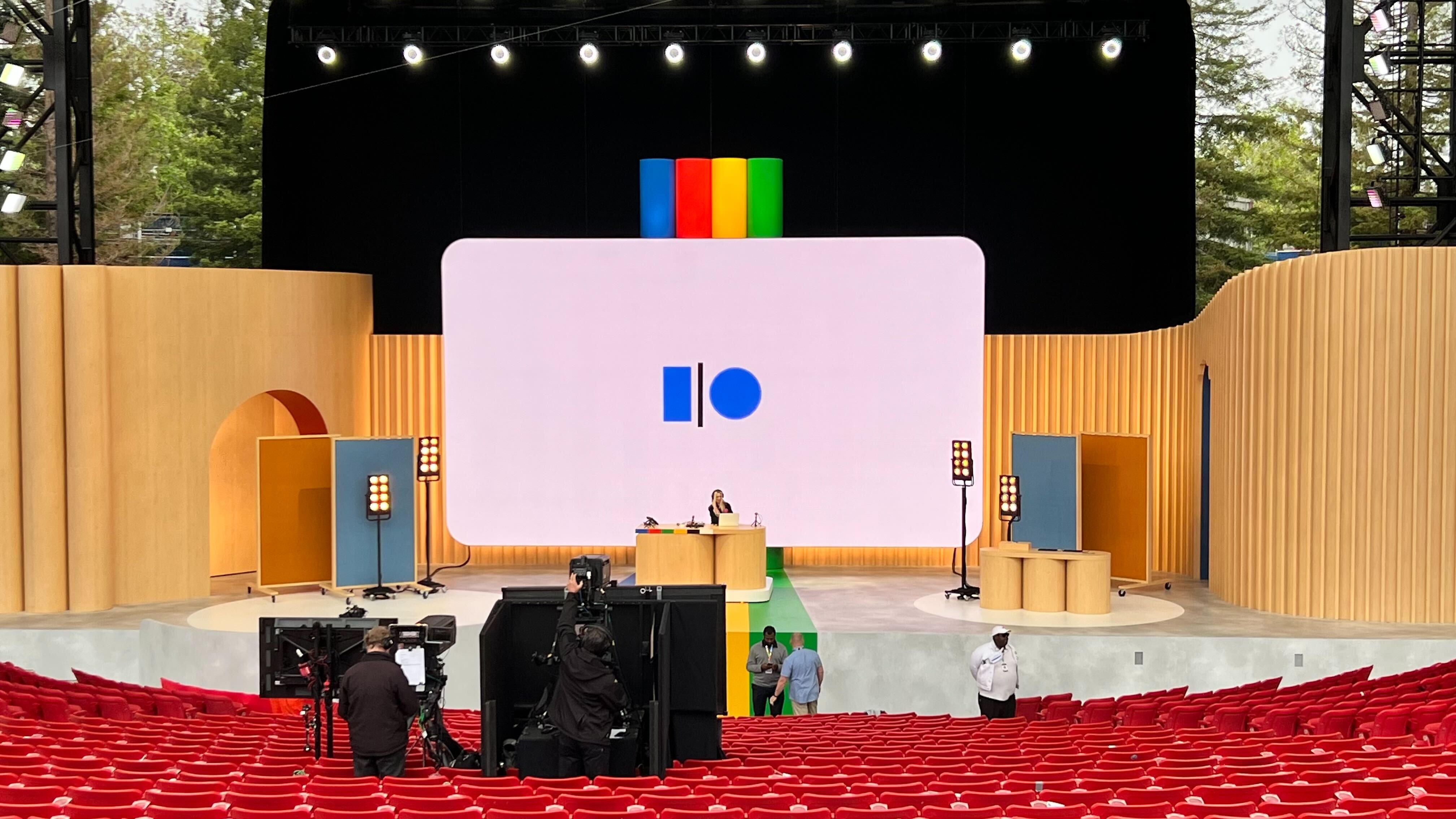
Sign up for breaking news, reviews, opinion, top tech deals, and more.
You are now subscribed
Your newsletter sign-up was successful
As a long time owner and fan, I was curious what Android 14 news we’d hear from Google I/O. After all, I/O 2023 was a revolutionary moment for Google products. The first folding phone! The first tablet (in a while)! A new ‘a’ Pixel! But … almost no Android news?! Now I’m wondering if Google forgot about the true meaning of Google I/O and the little droid who got them there.
The new Pixel 7a phone, which I reviewed for a week before it was announced at Google I/O, will ship with Android 13. No new OS for the new phone, just some minor improvements (camera), or not (battery).
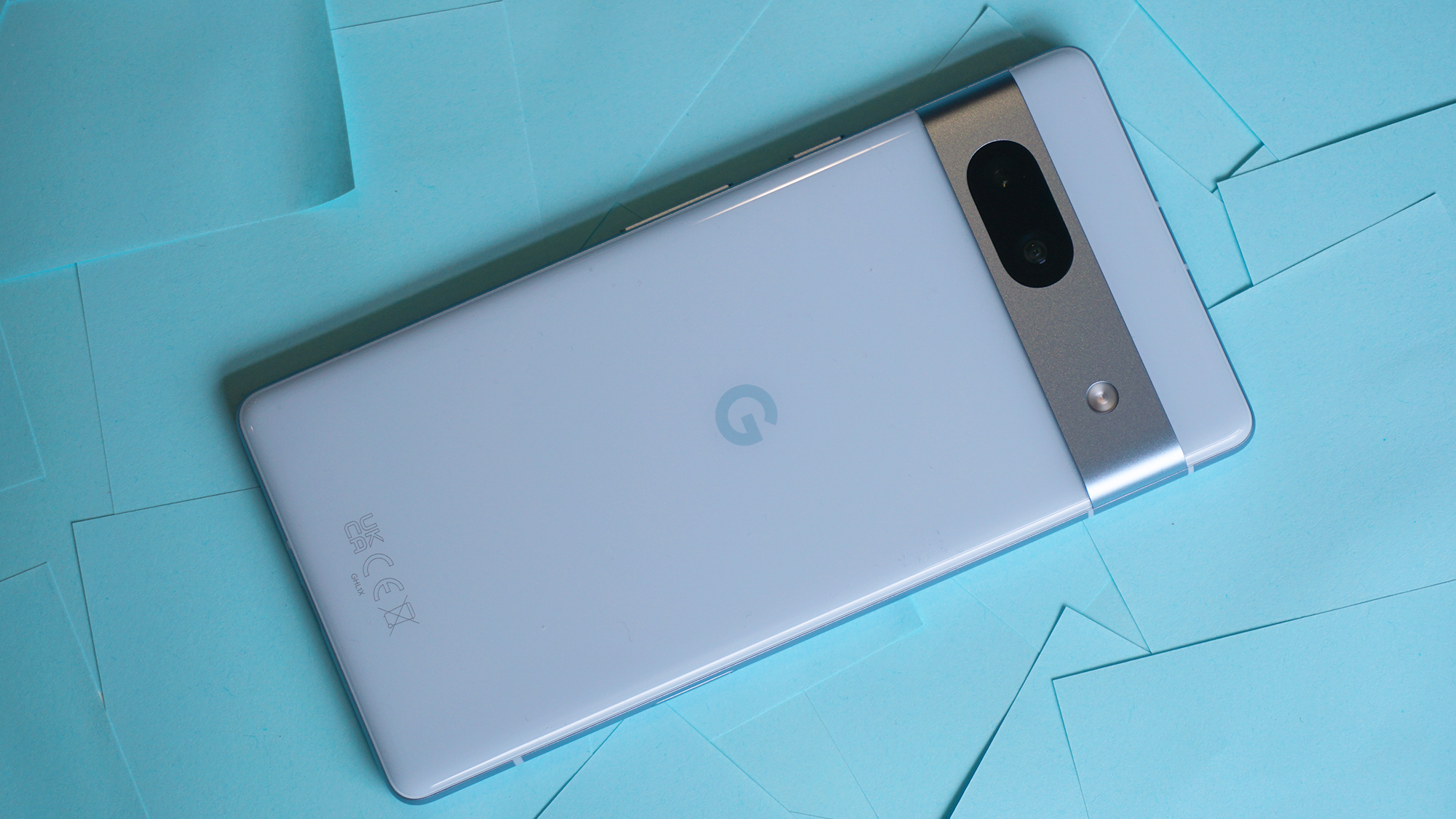
The new Pixel Tablet will run Android 13. There will be Nest software, and some sort of Google Chromecast feature built in, but these seem exclusive to the Pixel Tablet, and not upcoming Android tablet features. In fact, Google didn’t say anything at all about how Android was adapted to run better on the Pixel Tablet, and its silence is suspect.
The new Pixel Fold will run Android 13 at launch, and it will probably do more for Android phones than any Android device that Google has released to date. Google will finally have to adapt its interface to work with the dynamic, foldable display. Multiple displays at once, even. We’ve seen some promise of how dual screen features could work in the AI demos that Google showed off during the Google I/O keynote address.
In one demo, the Pixel Fold acted as a live interpreter for a conversation between two people speaking different languages. By holding the Fold up so both parties could see, each could read a translation of the other’s words on the screen facing them. One person gets the big inner display, one gets the outer screen. Both people get live translation.
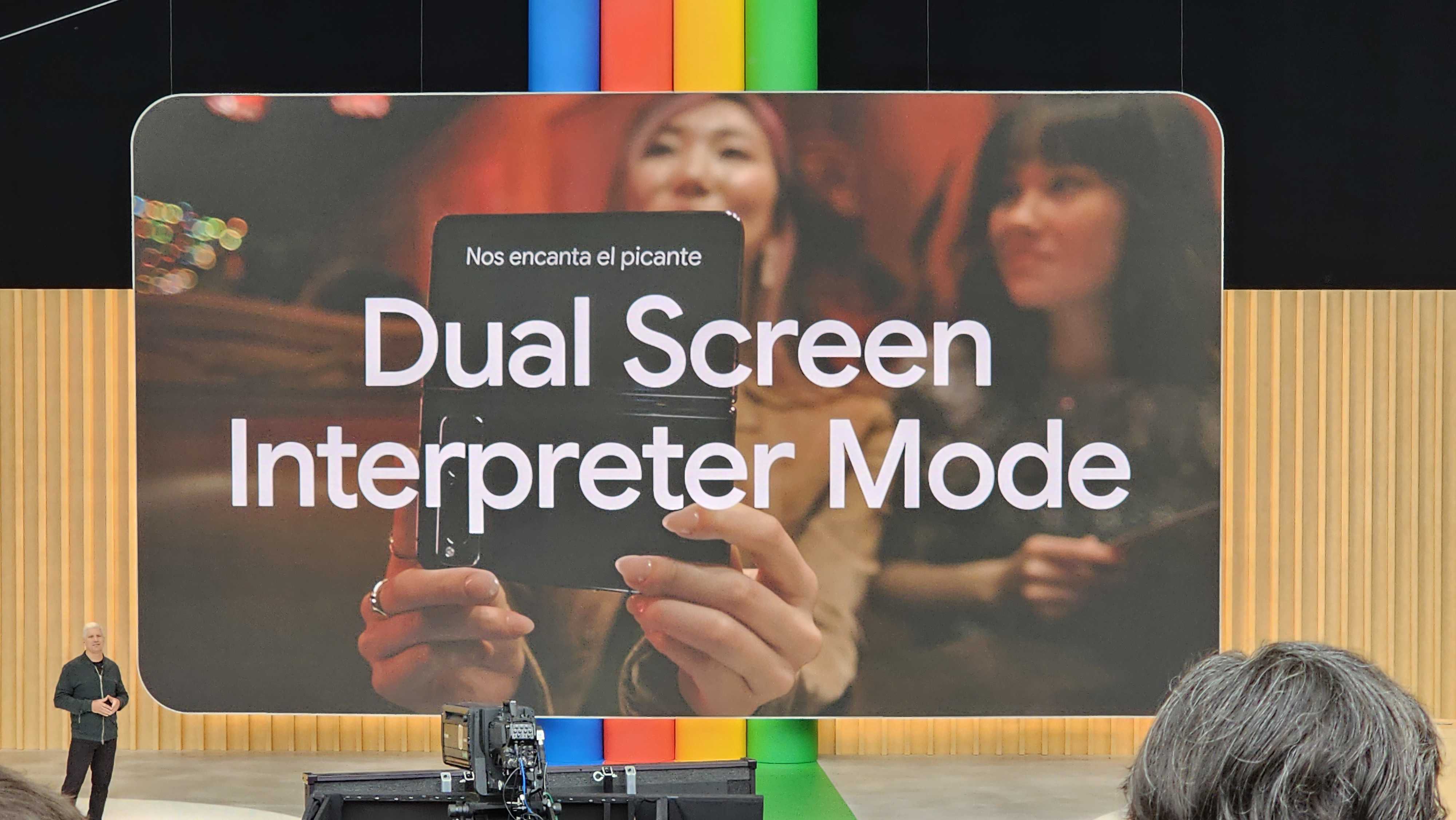
Amazing! New AI features are coming to Android! Except that Google never really expanded on that, or whether anything similar would come to other Android phones.
In fact, the only other AI feature that I remember from the Google I/O keynote address was some sort of generative AI wallpaper. Nothing I couldn’t accomplish by asking DALL-E to create an image then make it my wallpaper. I guess Google thinks I should be impressed when the Pixel does it for me, but I’m not interested.
Sign up for breaking news, reviews, opinion, top tech deals, and more.
Apple is not messing around with iOS 17
Apple doesn’t leave its users behind, and that makes the iPhone more valuable
This is a terrible year for Google to be asleep at the Android helm. Apple seemed distracted by side projects like the AR headset that may never materialize, but recent rumors suggest iOS 17, the next major iOS update, will be a real crowd-pleaser.
One of the most accurate Apple leakers, Mark Gurman, notes that the iOS 17 update will “check off several of users' most requested features.” There’s no end to what that could mean, but further leaks indicate myriad improvements to every aspect of the iOS interface, from widgets to search to the lock screen. Everything could get better.
For Android? Everything could get … what exactly? Older? Obsolete? Google’s latest Pixel 7a budget phone left me flummoxed when I discovered it would only get three years of major software updates. Even though it runs on the same hyper-advanced Google-developed Tensor G2 chipset as the Pixel 7 Pro. Three years, then it’s adrift in the ocean. It stings even further that it starts with Android 13, even though Android 14 is already available as a public beta. Those three years will only take it through Android 16.
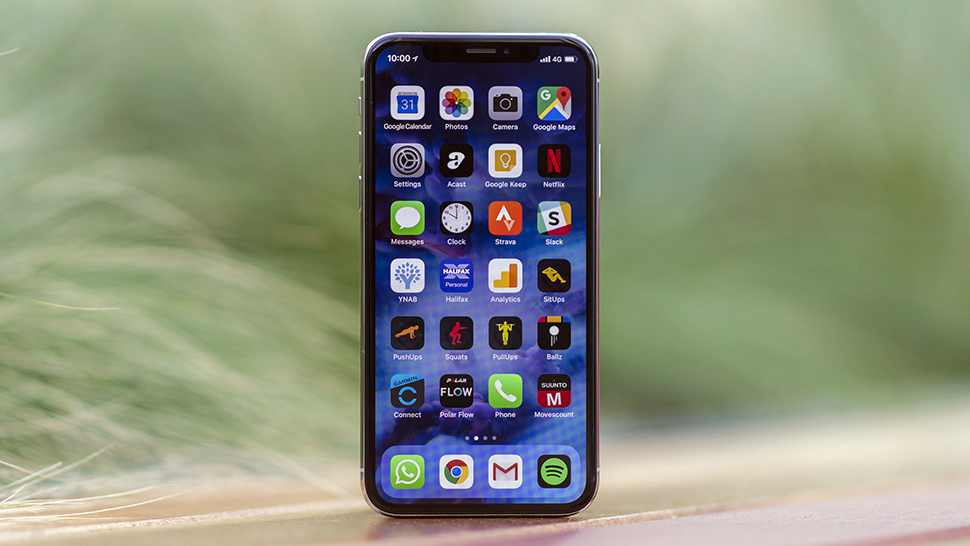
Meanwhile, Apple throws its long term users a raft. Those amazing new iOS 17 features? They could trickle all the way back to the iPhone X (10), possibly even earlier. The cheapest iPhones get the same updates as the best iPhones. Apple doesn’t leave its users behind, and that makes the iPhone more valuable versus an Android every year you own it.
All of the new stuff that Google announced at Google I/O was either an AI development or a feature specific to one of the new devices. There was nothing for everyone. In June, Apple is going to tell its devotees about all the cool new features being shown at WWDC 2023. Google is letting smaller manufacturers serve up its Android 14 beta without much fanfare.
Google, don't take my love for granted
Android, as a system and a community, feels lost. Is Google still our friend? Was it ever? I’ve mostly owned Samsung Android phones, like most Android owners, if you infer from the sales figures. Google has always felt like a Samsung competitor more than a partner, even though the best Samsung phones are the best Android phones, and vice versa.
The most notable exception was the co-development of Wear OS, but that was just because Google wanted to make its own smartwatch. Samsung may not sell a ton of Galaxy Watches, but it sells more watches than any other Android phone maker.

Those watches long used a variety of wearable OS cooked up by Samsung in its house kitchens. Before the Wear OS partnership, it was Tizen, a robust little OS Samsung uses across its product line, even on TVs. Tizen was an evolution of Samsung’s Bada OS, which it used on a few interesting feature phones before turning its attention to Android.
Do you see where I’m going? Samsung is the largest Android phone maker. Why does it even need Android? Mostly for Google. It needs Google’s app distribution in the Play Store. It needs Google Play apps and services. Without Google, you don’t have Chrome, Gmail, Google Maps, and any number of convenient Google features.
Samsung has long been the whipping boy... while Google somehow goes unscathed for the terrible reputation of the platform it created
Still, others manage. Huawei has been shunned by Google and the US government for a few years, and it’s still hanging on, though its success is entirely local these days. It wouldn’t be hard to imagine a few large companies, including Huawei, getting together and deciding they’d had enough of Google’s dominance over Android.
Samsung has long been the whipping boy of the mobile industry, taking the blame for shoddy Android phones and the lack of respect for Android owners, while Google somehow goes unscathed for the terrible reputation of the platform it created. How long should Samsung take the abuse? Maybe it’s time for Samsung and other phone makers to give us a third platform option.
You're probably using a mobile phone OS on your TV
The idea is not as profane or impossible as it sounds. For one thing, there’s a pretty fine mobile OS floating around on other products right now. Your LG television may run WebOS, which started life as a revenant Palm mobile device OS. It’s evolved considerably since then, and so have our mobile device needs, but it’s a thought.
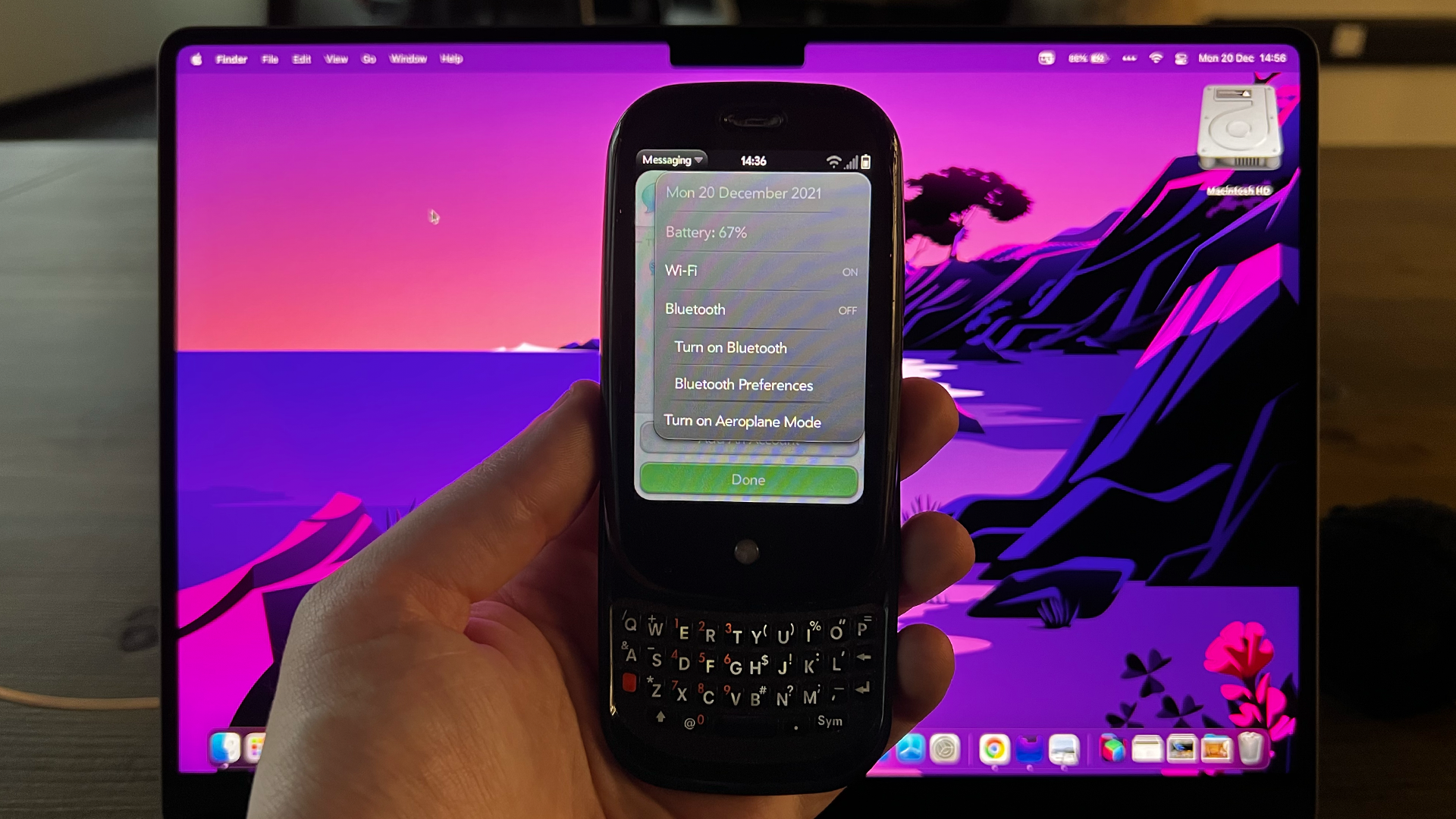
On the other hand, there have long been calls for mobile devices to move beyond platform-walled gardens and become more agnostic by relying on the browser for most apps. If your phone ran a Chromium-based browser that was properly reinforced by the processor and graphics capabilities, there’s no reason that every app you use today couldn’t be run through the phone’s browser instead of as a standalone app.
Maybe I’m tired after spending a week with a phone that dies before dinner (read more in my Pixel 7a review). Maybe I’m nervous that all of these AI features that monopolized Google’s attention at I/O are just going to steal my job and destroy the fabric of society, in that order.
Or maybe I’m a big old Android fan who wore my Big Android BBQ t-shirt to watch Google’s big Android show Google I/O and I didn’t get no Android out of it. All I got were AI wallpapers and Google versions of stuff that other companies make – a tablet and a folding phone. If Google is just going to follow others in Android, maybe it’s time for those others to lead.

Starting more than 20 years ago at eTown.com. Philip Berne has written for Engadget, The Verge, PC Mag, Digital Trends, Slashgear, TechRadar, AndroidCentral, and was Editor-in-Chief of the sadly-defunct infoSync. Phil holds an entirely useful M.A. in Cultural Theory from Carnegie Mellon University. He sang in numerous college a cappella groups.
Phil did a stint at Samsung Mobile, leading reviews for the PR team and writing crisis communications until he left in 2017. He worked at an Apple Store near Boston, MA, at the height of iPod popularity. Phil is certified in Google AI Essentials. His passion is the democratizing power of mobile technology. Before AI came along he was totally sure the next big thing would be something we wear on our faces.